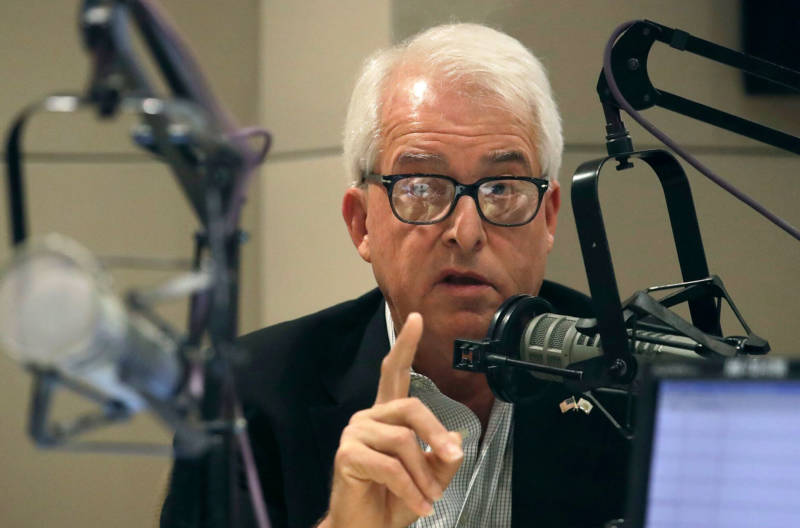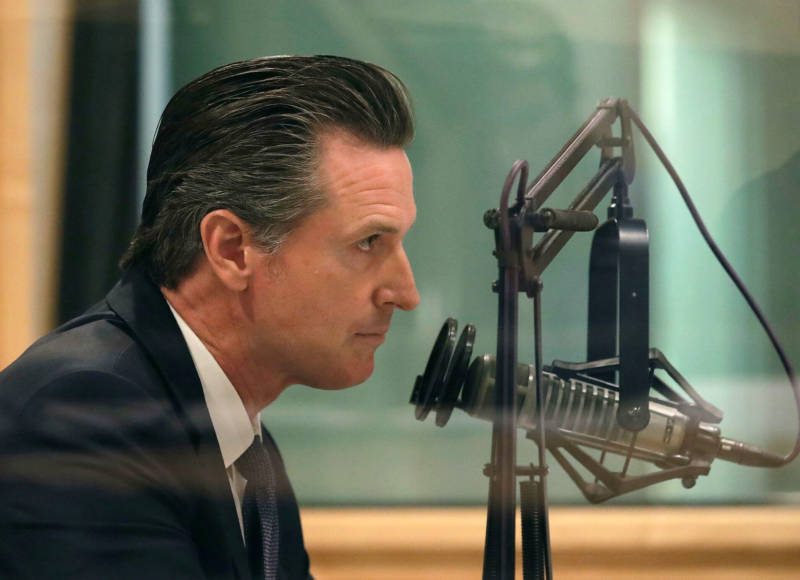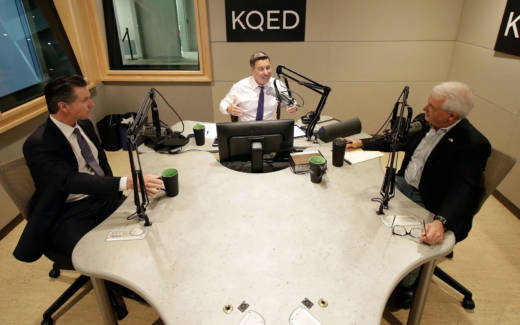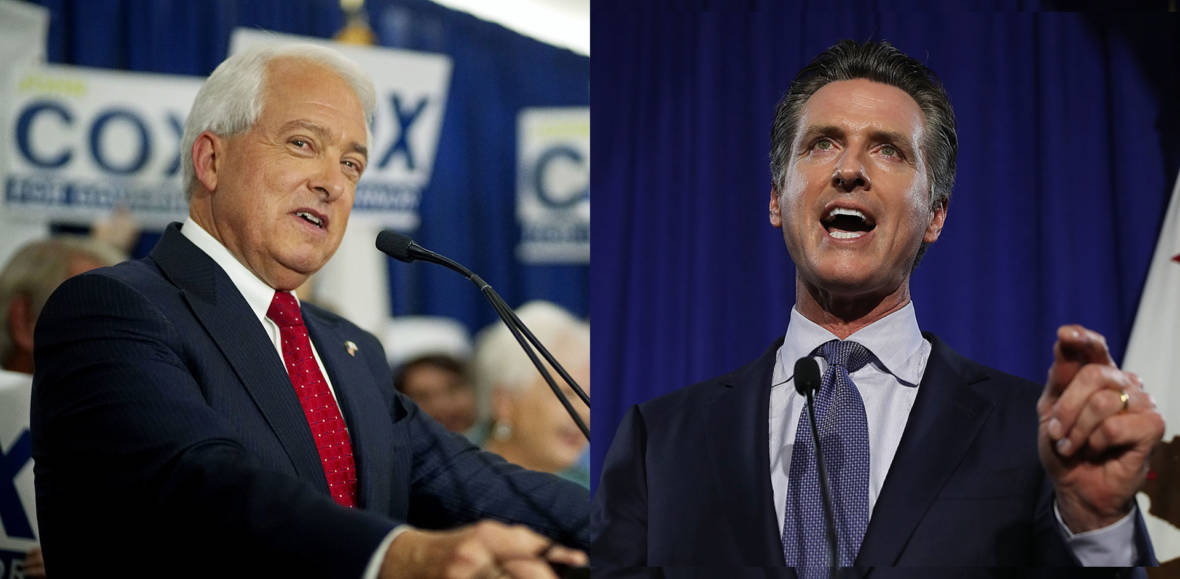Gubernatorial candidates John Cox and Gavin Newsom faced off in an hour-long radio debate on KQED's Forum on Monday morning that covered plenty of policy ground, but did not reveal much new information about the candidates.
Cox, a Republican businessman from San Diego, and Gavin Newsom, the Democratic lieutenant governor of California, staked out predictable positions on issues ranging from housing and affordability to climate change to criminal justice.
Cox tried to walk a fine line between tying himself to President Donald Trump and not positioning himself too far to the right in liberal California. Cox repeatedly cited problems he sees in California — ones he blames on Democrats — but demurred on how he would actually solve them.
"We will talk about that after I'm elected governor," Cox said when pressed for specifics about how to lower the costs of building in California. "I have a lot of reform ideas."

Newsom appeared more eager to delve into policy issues and repeatedly tied himself to outgoing Gov. Jerry Brown.
His most surprising moment came during a portion of the debate that was focused on how the state can encourage more housing development. Newsom said the current tax structure disincentivizes housing production in favor of retail.
"Is Prop. 13 on the table?" moderator Scott Shafer asked, referring to the 1978 ballot measure that limits property taxes to the value of a home when a buyer moves in.
"Everything is on the table," Newsom responded.

If it didn't reveal new divisions between Newsom and Cox, the debate did illustrate the clear differences — both in policy and personality — among the two candidates.
Housing
The first 10 minutes of the hour focused on housing production in California — both candidates have pledged to dramatically increase the amount of development in California as a way to bring down prices.
Asked whether part of the problem is too much local control — that is, cities and counties often kill or scale down development — Cox talked about the building he has done in other states for "one-fourth or fifth of the cost." He blamed "special interests."
"The reason is red tape, taxes and lawsuits," he said. "Government has driven up the costs of housing."
Cox called for "leadership" from Sacramento. But, he said, local governments don't have too much power. Instead, he called for reform to the state's landmark environmental law, but didn't say what he would replace it with.
Newsom framed the problem as one of "intentionality or lack thereof," saying state government must be more involved in setting housing goals. He agreed that local opposition to development is a problem.
"There is a certain point where the state of California needs to intervene — how to incentivize good behavior or disincentivize bad behavior," Newsom said, noting that the Bay Area's regional transit authority is exploring taking transit dollars away from cities and counties that aren't meeting housing production goals.
Listen to the full exchange on housing:



